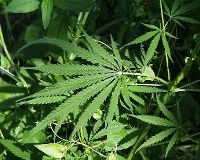Marijuana is Safer Than Water
I sometimes wonder if we rely too heavily on the argument that marijuana is safer than alcohol and tobacco. People who don't know anything about marijuana (which comprise a substantial portion of our opposition) may have a hard time understanding what we mean by that. Moreover, it's tricky to compare the totality of harm produced by those drugs vs. marijuana because our opponents obscure the analysis by blaming the harms of alcohol and tobacco on their legality.
Inevitably, the argument that marijuana is safer than alcohol and tobacco suffers by virtue of the fact that those drugs are pretty dangerous. Being safer than them doesnât mean it's safe. So for a while now, I've been trying to think of something else to compare it to and I think Pete Guither nails it in this post.
Inevitably, the argument that marijuana is safer than alcohol and tobacco suffers by virtue of the fact that those drugs are pretty dangerous. Being safer than them doesnât mean it's safe. So for a while now, I've been trying to think of something else to compare it to and I think Pete Guither nails it in this post.

